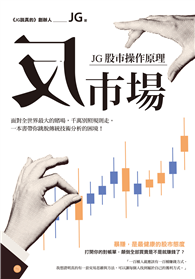The reconstruction of the prosody of a dead language is, on the face of it, an almost impossible undertaking. However, once a general theory of prosody has been developed from reliable data in living languages, it is possible to exploit texts as sources of answers to questions that would normally be answered in the laboratory. In this work, the authors interpret the evidence of Greek verse texts and musical settings in the framework of a theory of prosody based on crosslinguistic evidence and experimental phonetic and psycholinguistic data, and reconstruct the syllable structure, rhythm, accent, phrasing, and intonation of classical Greek speech. Sophisticated statistical analyses are employed to support an impressive range of new findings which relate not only to phonetics and phonology, but also to pragmatics and the syntax-phonology interface.







![塔木德:猶太人的致富聖經[修訂版]:1000多年來帶領猶太人快速累積財富的神祕經典 塔木德:猶太人的致富聖經[修訂版]:1000多年來帶領猶太人快速累積財富的神祕經典](https://media.taaze.tw/showLargeImage.html?sc=11100697818)



